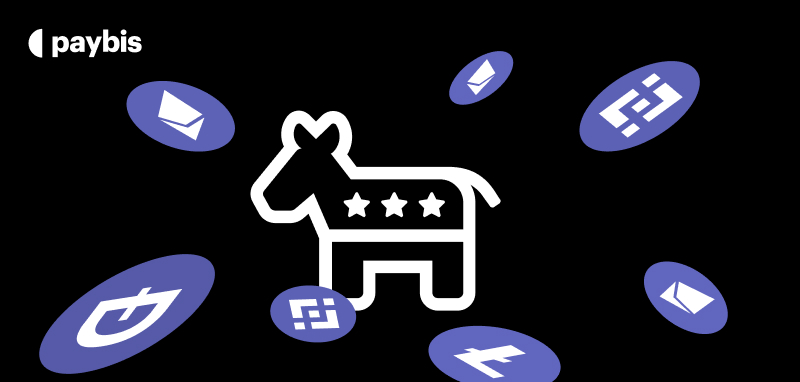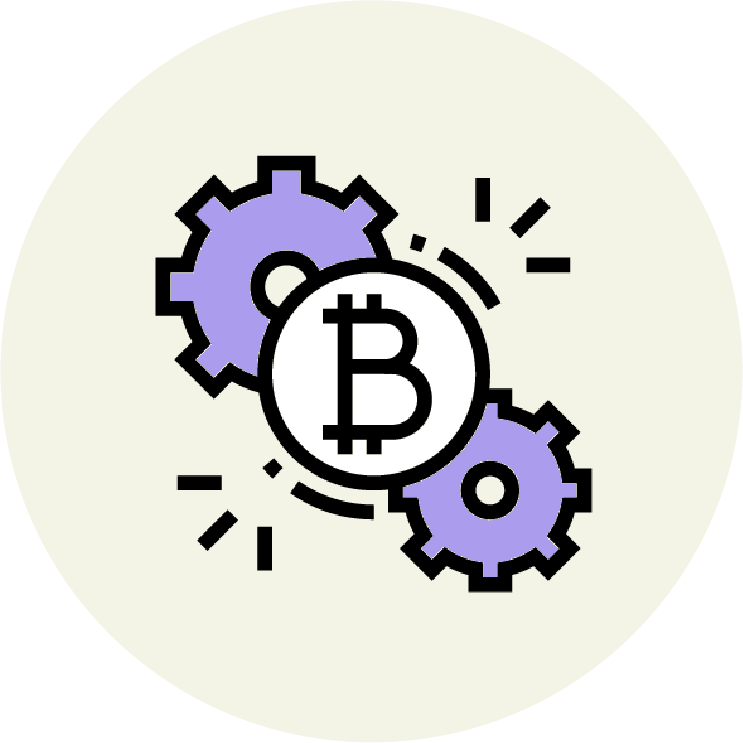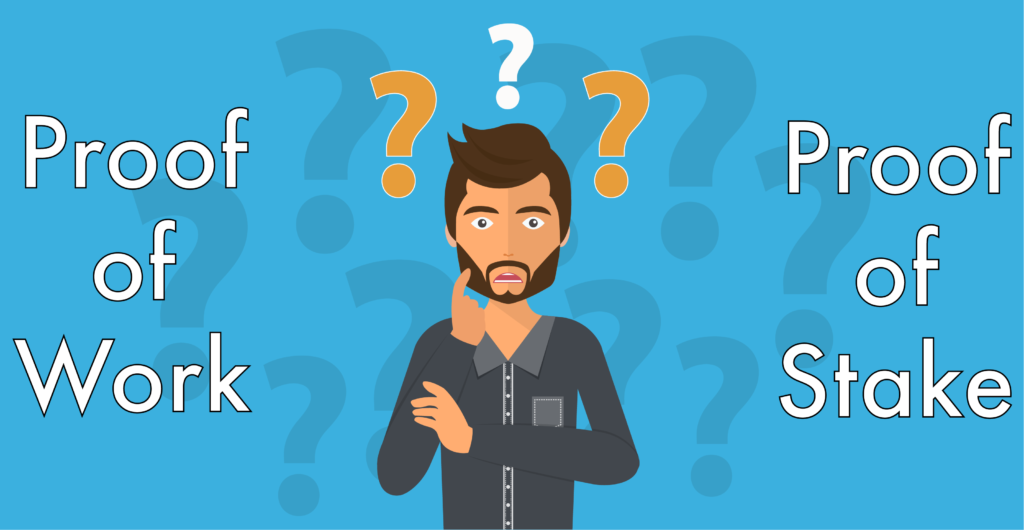Proof of Stake (PoS)
Proof of Stake (PoS) is a concept that allows an individual to validate block transactions depending on the number of coins he or she holds within the network
Do you want to know what is PoS and how one can conclude that a coin has a Proof of Stake protocol? Then read our explanation below.
Table of contents
What is PoS (Proof of Stake)?
Proof of Stake (PoS) is a concept that allows an individual to validate block transactions depending on the number of coins he or she holds within the network. This means that the more cryptocurrency one holds, the more validating power he or she has.
Which Cryptocurrencies Use Proof of Stake?
Major cryptocurrencies currently using Proof of Stake include:
- Ethereum (ETH) – The second-largest cryptocurrency switched from Proof of Work to Proof of Stake in September 2022 during “The Merge.” Ethereum’s PoS system allows holders to stake ETH and earn 3-5% annual rewards while securing the network. You can buy Ethereum on Paybis right now.
- Cardano (ADA) – Built from the ground up as a PoS blockchain, Cardano uses the Ouroboros protocol and offers staking rewards of 4-6% annually without requiring users to lock their funds.
- Solana (SOL) – Uses a unique combination of Proof of Stake and Proof of History, allowing for high transaction speeds. Staking rewards typically range from 6-8% APY.
- Polkadot (DOT) – Features nominated Proof of Stake where token holders nominate validators to secure the network, earning approximately 10-14% annual returns.
- Binance Coin (BNB) – Powers the BNB Chain using PoS consensus with 21 validators. You can also buy BNB on Paybis.
Proof of stake explained
The idea for Proof of Stake (PoS) was introduced in 2011 on the Bitcointalk forums when a user named quantummechanic offered this idea as a solution to improve upon the weak points of Proof of Work.
Since then, PoS has evolved into the dominant consensus mechanism for new blockchains. Ethereum’s historic transition to PoS in 2022 marked a turning point for the industry.
To understand how PoS works, we need to compare it with its predecessor, PoW. While proof of work utilizes miners who can work alone or in collaboration (mining pools), PoS chooses only one validator (node) to confirm a transaction.
PoS vs PoW: Energy Consumption Comparison
Ethereum’s shift from Proof of Work to Proof of Stake reduced its energy consumption by approximately 99.95%. To put this in perspective:
- Proof of Work (Bitcoin): Consumes roughly 150 terawatt-hours annually – comparable to the entire country of Argentina
- Proof of Stake (Ethereum): Consumes about 0.01 terawatt-hours annually – comparable to a small town
This massive reduction in energy use addresses one of the main criticisms of cryptocurrency and makes PoS networks more sustainable long-term. Environmental concerns increasingly drive new projects to choose PoS over PoW from launch.
Not only does PoS use considerably less energy than PoW, but it also is more decentralized than mining pools, since there is no option to create mining pools.
For a user to participate as a validator, he would need to deposit a number of coins (POS coins) into the coin’s network as a stake. The size of the deposit increases his chances of being chosen to validate the next block.
Best of PoS coins
Best of PoS coins are the following: Decred, Stellar Lumens, Ontology, Komodo, Dash, NEO, Pivx, Lisk, Stratis. Let’s look at the best PoS for staking for 2026:
| Cryptocurrency | Market Cap Rank | Avg. Staking Rewards | Key Feature |
| Ethereum (ETH) | #2 | 3-5% APY | Most secure PoS network |
| Cardano (ADA) | #8 | 4-6% APY | No lock-up period |
| Solana (SOL) | #6 | 6-8% APY | High transaction speed |
| Polkadot (DOT) | #15 | 10-14% APY | Cross-chain functionality |
| Avalanche (AVAX) | #12 | 8-10% APY | Sub-second finality |
Each of these networks allows users to earn passive income by staking their tokens to help validate transactions. The rewards vary based on network inflation, total staked amount, and validator performance.
How does the future look like for PoS?
Proof of Stake consensus has been rapidly growing in popularity and there are several reasons for that:
- Staking is a more democratic way to distribute rewards in the network. This is because the participating nodes do not need to be “enhanced” with expensive mining equipment. Instead, all that is required is for users to lock their funds in the wallet.
- The majority of crypto investors consist of millennials. And, for this younger generation, the idea of passive income is a very “hot” topic at current times. As such, the concept of PoS promises seems very promising and luring. This is because it offers annual returns without actually doing any type of work. Users only need to lock their funds for a given amount of time to receive daily returns.
- Proof of stake is a lot better for the environment as it requires significantly less electricity to confirm transactions on the network. Apart from that, the amount of nodes that actually confirm transactions is much lower than PoW. It also is a lot more expensive to join. Therefore, we can expect that this trend will continue in the future.
Where can I learn more about Proof of Stake?
We have researched and documented the PoS consensus protocol extensively on our blog. You can further improve your knowledge by reading the following articles:
- What is Staking – In this short post, we explain what PoS staking is and how it works. This is a great post if you have a limited amount to invest and wish to learn the basics.
- Best staking coins – We recently created an in-depth guide on the best coins that reward users with their staking model. In there, you will not only see our favorite picks, but also a step-by-step guide on how to start staking your coins. This is a great resource for investors who want to start earning passive income through PoS coins.
- PoW vs PoS – This article is a little more technical. In it, we explain the main differences between Proof of Work and Proof of Stake. We also list the pros and cons of each consensus method, to help you get a better overview. This article is great for people who want to get a better understanding of the technical differences between the two options.
And that’s it! We hope you found this short post valuable. If any questions remain, or you wish to make add something to the post, make sure you leave a comment in the comment section down below.
FAQ
What is staking crypto?
Staking crypto means locking your coins in a Proof of Stake network to help validate transactions. In return, you earn rewards paid in the same cryptocurrency. Think of it like earning interest on a savings account, but instead of a bank, you’re helping secure a blockchain network.
What does staking crypto mean for passive income?
Staking allows you to earn rewards (typically 3-15% annually) without actively trading. You keep ownership of your coins while they work to secure the network. However, some networks require lock-up periods where you cannot access your funds.
Which crypto uses PoS for the highest rewards?
Newer PoS networks like Polkadot (10-14% APY) and Avalanche (8-10% APY) currently offer higher staking rewards than established networks like Ethereum (3-5% APY). Higher rewards often come with higher risk and lower liquidity.
Is staking crypto safe?
Staking on major PoS networks is generally safe, but there are risks. They include:
- slashing penalties if your validator misbehaves
- smart contract bugs
- price volatility of the staked asset.
Only stake what you can afford to have locked up, and research the network’s track record.
Disclaimer: Don’t invest unless you’re prepared to lose all the money you invest. This is a high‑risk investment and you should not expect to be protected if something goes wrong. Take 2 mins to learn more at: https://go.payb.is/FCA-Info


